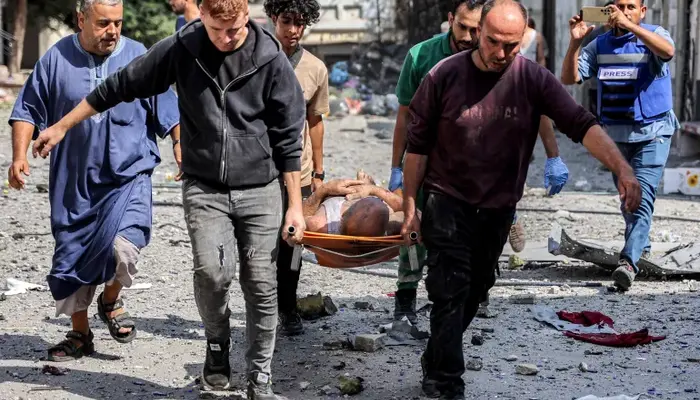Hussam Abu Safiya, the director of Kamal Adwan Hospital, spoke to Al Jazeera about the catastrophic health crisis in northern Gaza. He emphasized the urgent need for safe corridors to evacuate patients in dire situations. Abu Safiya described the current state of hospitals as critical, highlighting the overwhelming challenges healthcare workers face.
The Israeli army intensified its ground assault in northern Gaza 12 days ago. Areas like Beit Hanoun and Beit Lahiya have faced relentless bombing from warplanes, exacerbating the already dire humanitarian crisis. The UN’s human rights office reported that Israel seems to be completely cutting off North Gaza from the rest of the strip.
In addition to the crisis in Gaza, Israeli military actions extended into southern Lebanon. Following airstrikes, the military claimed it targeted Hezbollah installations in the Nabatieh region. They reported hitting military buildings and munitions warehouses, alleging that Hezbollah used civilian structures as shields. The bombardment resulted in at least five casualties, including the town’s mayor.
Escalation Before the American Elections
The Israeli army also raided underground infrastructure in southern Lebanon, claiming to find weapons and living spaces used by Hezbollah. Sultan Barakat, a professor at Hamad Bin Khalifa University, suggested that Israel’s increased bombardment of Lebanon reflects its strategy to neutralize threats from Hezbollah before addressing Iran. Barakat pointed out that this escalation occurs just before the American elections, indicating a need for Israel to restore its deterrent capabilities in the region.
Since October 2023, the death toll in Gaza has reached at least 42,409, with over 99,000 people injured. The latest figures include 65 fatalities in the past 24 hours. The actual death toll may be significantly higher, with estimates suggesting that around 10,000 bodies lie buried in Gaza’s ruins.
Read: Power Breakdown Halts Water Supply to Karachi After Pipeline Rupture
United Nations
In Lebanon, the United Nations has requested $426 million in aid for the 1.2 million displaced individuals, many of whom have taken refuge in schools. The government reported that its resources are stretched thin, resulting in people sleeping on the streets of Beirut and elsewhere.
The fragile infrastructure in Lebanon is under severe strain due to the ongoing conflict. The government insists that a ceasefire is essential to manage the escalating violence between Hezbollah and Israel. Israeli naval forces have intensified strikes against Hezbollah targets in southern Lebanon, with more than a quarter of the country affected by military evacuation orders.
Since the offensive began, Israel has killed several Hezbollah leaders, intensifying its air campaign, especially in the southern city of Nabatieh. The death toll in Lebanon since the onset of these attacks has surpassed 1,350, although the actual numbers may be higher.
Starvation
Day 12 of the Israeli military operation in northern Gaza has seen further destruction and despair. Civilians face deliberate starvation, as they are blocked from accessing food, water, and essential medical resources. Aid workers and NGOs are struggling to provide necessary assistance, hampered by ongoing military actions.
The relentless bombardment has left civilians trapped in small areas, unable to escape. Attempts to flee have been met with drone attacks, creating a perilous situation for those caught in the conflict. The desperate circumstances in both Gaza and Lebanon underscore the urgent need for humanitarian assistance and a lasting ceasefire.
Follow us on Google News, Instagram, YouTube, Facebook,Whats App, and TikTok for latest updates
